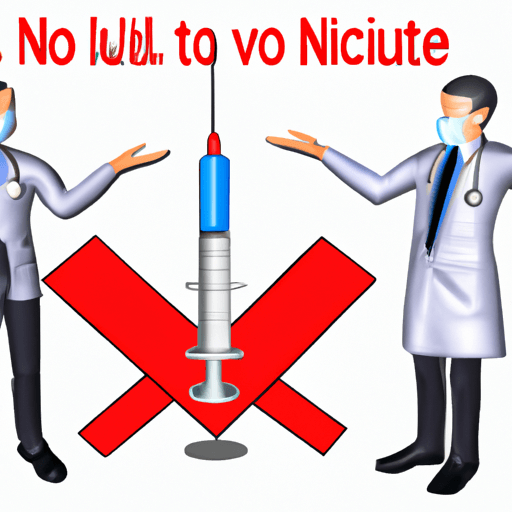Vaccinations: A Mandate or Personal Choice?
With the ongoing debate over the necessity and rights of individuals towards vaccinations, this article aims to objectively explore the argument of vaccinations as a mandate or a personal choice.
Pros and Cons of Obligatory Immunizations
From a public health perspective, obligatory immunizations aim to protect whole communities and minimize the risks of epidemics. They ensure herd immunity, enabling the protection of a large group of people, thus limiting the propagation of diseases.
Legally, the debate is more complex. Governments must balance between protecting public health and safeguarding individual freedoms and rights, including the right to choose what happens to one's body. Imposing vaccination might be seen as an infringement on these rights.
From an ethical standpoint, obligated vaccination promotes the collective good above individual preferences. However, is it ethical to force someone to take a vaccination against their will?
Implications of both approaches
When vaccinations are obligatory, community health typically improves as diseases are controlled, and epidemics are avoided. However, mandatory vaccinations can infringe on individual rights and freedoms, leading to ethical and legal debates.
On the other hand, allowing vaccinations to be a personal choice respects individual rights but risks public health, especially for vulnerable groups who cannot get vaccinated due to medical reasons.
Historical Precedents and Current Policies
Historically, mandatory vaccinations have been successful in eradicating diseases like smallpox and controlling polio, stressing their importance in large-scale public health. Policies regarding vaccinations vary globally. In some regions like the USA, some vaccinations are mandatory for school entry, while others recommend selected vaccines.
Relevant Scientific Findings
Research overwhelmingly supports the effectiveness and safety of vaccinations. They decrease disease prevalence, reduce mortality, and save costs on healthcare. However, false information and misinformation can cause mistrust and reduce vaccine uptake.
The role of education and information
Education and access to accurate, applicable information are essential to making informed choices about vaccinations. Public health strategies must focus on clear communication about the benefits and risks of vaccines and dispel myths propagated by anti-vaccine movements.
While balancing public health benefits and individual rights is intricate, driving transparent, science-backed discourse is key. Whatever the stance – mandatory or personal choice – the goal remains to protect individuals and communities from preventable diseases.















Comments
Leave a Comment